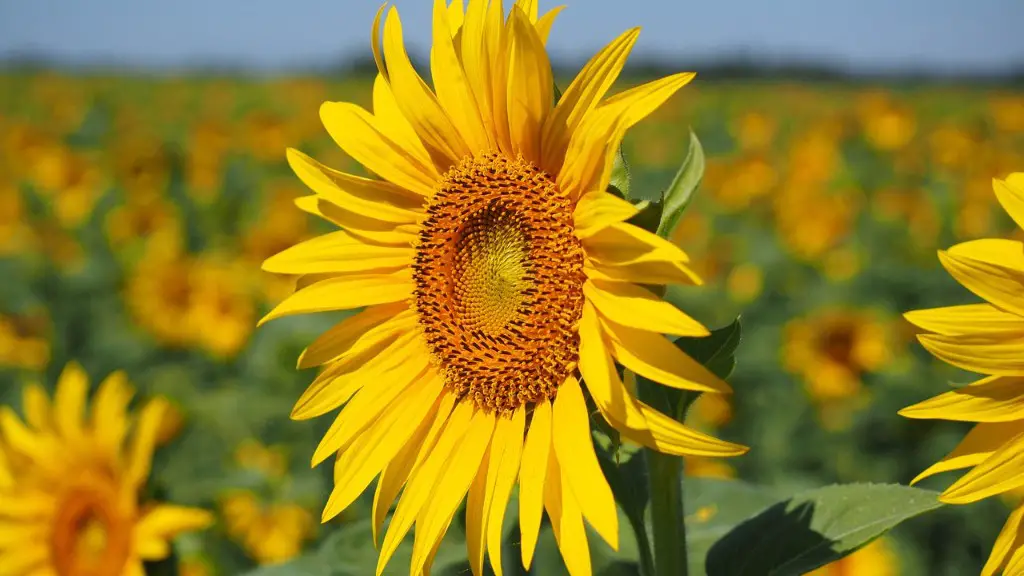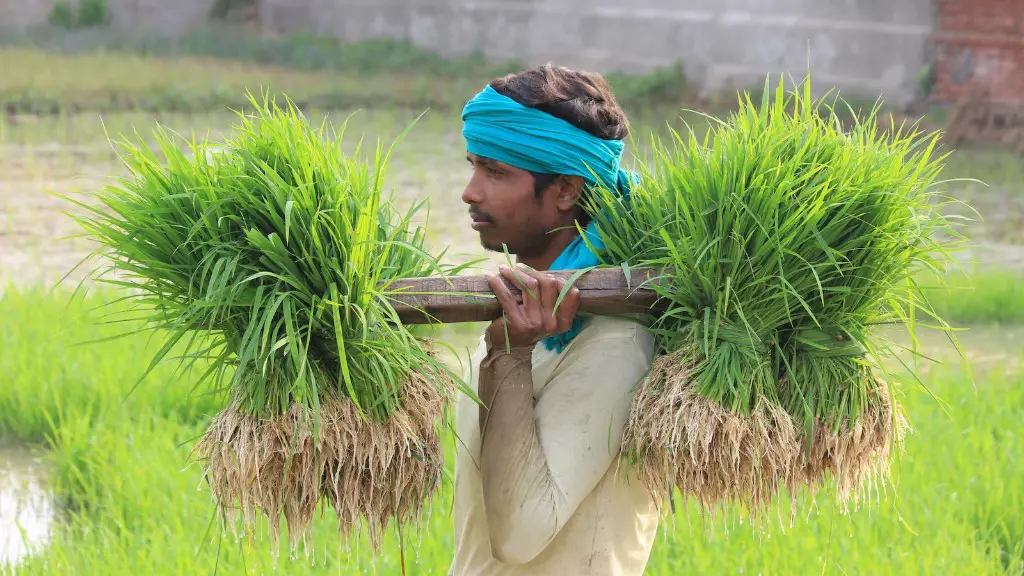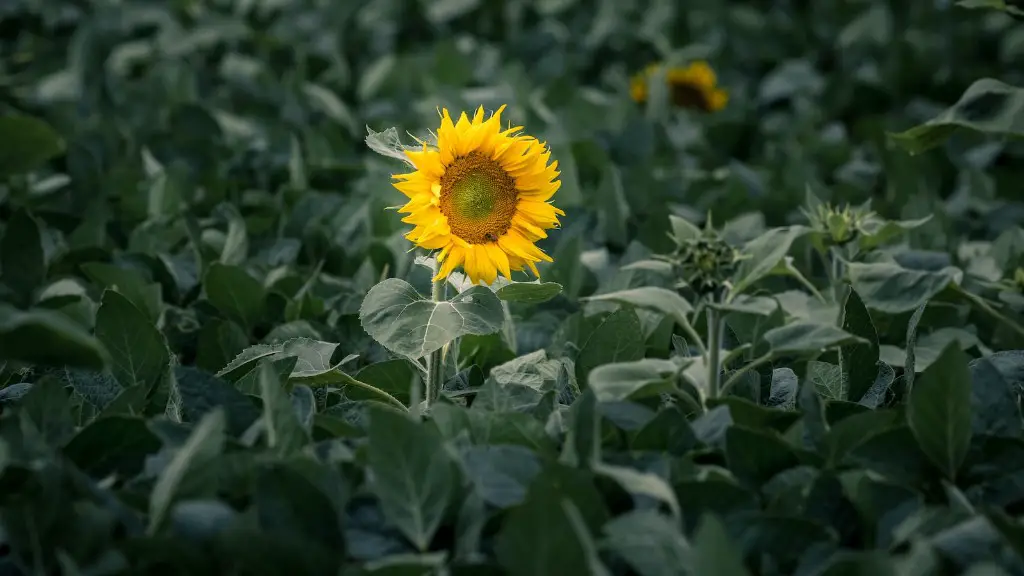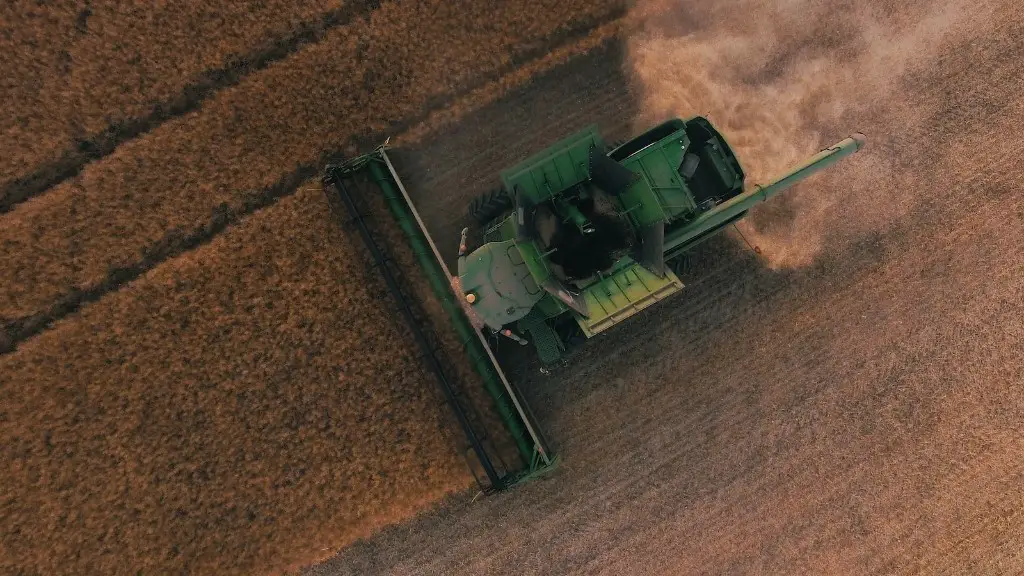Biodiversity in agriculture refers to the variety of plant and animal species found on farms and in other agricultural ecosystems. This includes both the biodiversity found within a single farm ecosystem, as well as the variety of agricultural ecosystems found across the globe. Biodiversity plays an important role in ecosystem functioning and the provision of key ecosystem services, such as pollination and pest control. Increasing evidence shows that more biodiverse agricultural systems are more productive, resilient, and efficient than less biodiverse ones.
Biodiversity is the variety of plant and animal life in a particular habitat, or the variety of life on earth as a whole. Agricultural biodiversity is the variety of crops and livestock that are raised on farms and in pastoral systems.
What is biodiversity in simple words?
Biodiversity is important for the health of our planet and the wellbeing of our species. A healthy level of biodiversity helps to maintain the balance of our ecosystems and ensures that life can continue to thrive. By protecting biodiversity, we are also safeguarding the many benefits that it provides us with, including food, clean water, and medicine.
Agricultural biodiversity is important for food and agriculture because it provides a wide variety of plant genetic resources that can be used for food, medicine, and other purposes. This diversity is essential for ensuring that crops and other plants can adapt to changing environmental conditions, pests, and diseases. Additionally, agricultural biodiversity can provide a source of income for farmers and other people who depend on food and agriculture for their livelihoods.
Why is biodiversity so important in agriculture
Biodiversity among domesticated crops and livestock is important for many reasons. Perhaps most importantly, it helps to ensure a large gene pool for traits like disease resistance. If we only grew a few varieties of plants, our food supply would be much more vulnerable to threats like climate change and disease. Therefore, it’s important to maintain a diverse population of crops and livestock in order to protect our food supply.
Biodiversity is important to agriculture because it provides the raw materials for food production. Biodiversity makes it possible for crop plants to resist pests and diseases. This is because different types of crops have different levels of resistance and susceptibility to pests and diseases.
What is biodiversity and why is it important?
Biodiversity is essential to the health of our planet and the well-being of all its inhabitants. It helps to provide us with clean air and water, food and other resources, and is vital to the pollination of our crops. Biodiversity also helps to protect us from extreme weather events and can play a role in mitigating climate change.
The loss of biodiversity is a serious threat to the future of our planet. Habitat loss, pollution, climate change and other human activities are causing species to disappear at an alarming rate. It is estimated that up to one million species could be lost within the next few decades.
We need to do everything we can to protect biodiversity. We can start by reducing our own impact on the environment, and by supporting conservation efforts around the world.
Biodiversity is the term used to describe the enormous variety of life on Earth. It can be used more specifically to refer to all of the species in one region or ecosystem. Biodiversity refers to every living thing, including plants, bacteria, animals, and humans.
Biodiversity is important for many reasons. It helps maintain the balance of ecosystems, provides food and shelter for animals and humans, and helps us to better understand the natural world.
There are many ways to help conserve biodiversity. Some ways include reducing our impact on the environment, preserving natural habitats, and planting native plants.
What are 5 examples of biodiversity?
Biodiversity is incredibly important for the health of an ecosystem. A diverse range of species ensures that the ecosystem can continue to function even if one species is negatively impacted. For example, if a disease wipes out a population of trees, the forest will still be able to survive because there are other species present. Biodiversity is also important for the beauty and interest of an ecosystem. A wide variety of plant and animal life creates a more visually appealing and interesting environment.
Biodiversity can be defined as the variety and variability of life on Earth. It is the diversity of all living organisms, including animals, plants, fungi, protists, archaea, and bacteria, as well as the diversity of the ecosystems in which they live.
Biodiversity can be measured at various levels, from the genetic level (the number of different genes within a species) to the ecosystem level (the variety of different ecosystems in an area).
Usually three levels of biodiversity are discussed—genetic, species, and ecosystem diversity.
Genetic diversity refers to the variety of genes within a species. This can be further subdivided into two types: microdiversity (the variety of genes within an individual) and macrodiversity (the variety of genes within a population).
Species diversity is the variety of different species in an area. This can be further subdivided into two types: richness (the number of different species in an area) and evenness (the relative abundance of different species).
Ecosystem diversity is the variety of different ecosystems in an area. This can be further subdivided into two types: landscape diversity (the variety of different ecosystems in an area) and habitat diversity (the variety of
How do farmers maintain biodiversity
You can go a long way in protecting your flowers and plants by planting thempurposefully. This will also create a cohesive environment for a varied set of creatures, enabling them to make a home of your farm and contribute to your land’s overall biodiversity.
This is a very important point that is often overlooked. Biodiversity is not just about the beauty of nature, but it is also about our own survival. We rely on a huge variety of plant and animal species for our food, and if we lose too much biodiversity, we will be in danger of starving. That is why it is so important to protect all the different species on our planet.
How does biodiversity benefit on farms?
It is estimated that the value of ecosystem services provided by biodiversity to the agricultural sector worldwide is worth US$577 billion annually. This figure is expected to increase as the world population grows and demand for food and other agricultural products increases.
The loss of biodiversity is therefore likely to have a negative impact on the economy, as the provision of ecosystem services declines. This impact is already being felt in some sectors, such as fisheries, where the loss of biodiversity is leading to a decline in the catches of fish and other seafood.
YouTube offers a wealth of videos on the benefits of biodiversity. Biodiversity supports healthy ecosystems that we rely on, and keeping biodiverse ecosystems intact helps humans stay healthy. Biodiversity is also an essential part of the solution to climate change. Not only is biodiversity good for the economy, but it is also an integral part of culture and identity.
Why is biodiversity important in simple words
Biodiversity plays a vital role in sustaining human life and wellbeing. The many benefits that humans obtain from biodiversity – such as food, fuel, shelter and medicine – are known as ‘utility values’. In addition, ecosystems provide crucial services to humanity, such as pollination, seed dispersal, climate regulation, water purification, nutrient cycling, and control of agricultural pests. Therefore, it is essential to protect and manage biodiversity in a sustainable way, in order to ensure the continued provision of these vital services and benefits.
Biodiversity supports many aspects of human life and society, from providing food and fresh water to developing new medicines and supporting economic opportunities. Good health relies on biodiversity in many ways, making it essential for overall wellbeing. Conservation and sustainable use of biodiversity is therefore crucial to ensure that these vital benefits can continue to be enjoyed by current and future generations.
What are 5 reasons why biodiversity is important?
Biodiversity plays a critical role in human health and food security. It helps fight disease, provides livelihoods, and protects us from the effects of extreme weather and natural disasters. The business value of preserving and protecting biodiversity is clear. Here are 5 reasons why biodiversity matters to jobs, health and the economy:
1. Biodiversity ensures health and food security:
Biodiversity is essential for the provision of food, medicine, and other vital resources. It supports pollination and soil health, both of which are essential for food production. Additionally, biodiversity helps to Filter and detoxify water, regulate climate, and provide natural habitats for many species of animals and plants.
2. Biodiversity helps fight disease:
Biodiversity provides us with a vast array of natural medicines and other health benefits. For example, plants and animals produce substances that can be used to develop new pharmaceuticals. Additionally, biodiversity can help prevent and control the spread of diseases by providing natural barriers and by providing habitats for predators and other natural controls.
3. Biodiversity benefits business:
Biodiversity provides a range of benefits to businesses, including pollination services, soil health, water filtration and purification, and climate
Biodiversity is an important factor in maintaining the health of ecosystems. When biodiversity is lost, it can lead to a decline in the ability of ecosystems to function properly. This can in turn lead to a deterioration in the quality of the environment and the health of the people and animals that rely on these ecosystems.
What are the 4 types of biodiversity
Biodiversity is the variety of life on Earth. It includes all the different plants, animals, and microorganisms that make up our planet. Biodiversity is important for the health of our planet and for the wellbeing of all its inhabitants.
There are four main levels of biodiversity: species, genetic, ecosystem, and global biodiversity.
Species biodiversity is the variety of different species that live on Earth. There are over 8 million species of plants, animals, and microorganisms on our planet. Each species has its own unique characteristics and plays an important role in the overall functioning of ecosystems.
Genetic biodiversity is the variety of genes within a species. This diversity is what allows species to adapt and evolve in response to changing conditions. For example, a species with a greater genetic diversity is more likely to survive and thrive in a changing environment.
Ecosystem biodiversity is the variety of different ecosystems on Earth. Ecosystems are the complex networks of interactions between the living things in an area and their physical environment. A healthy ecosystem is one that has a diversity of different species and a diversity of different habitats.
Global biodiversity is the variety of life on Earth as a whole. It includes all the different species, genes, and ecosystems on
One of the things that we take for granted in our diets is the incredible diversity of foods that we have access to. A large part of this diversity is due to the fact that many of our foods rely on insect and animal pollinators to propagate. Without these pollinators, our diets would be significantly less varied and exciting.
One of the joys of summertime is being able to go to a farmer’s market and enjoy all of the fresh fruits and vegetables that are in season. Many of these foods would not be possible without pollinators like bees. Other foods that we enjoy, like coffee and spices, also rely on pollinators to flourish.
As we celebrate National Pollinator Week, let’s take a moment to appreciate the small joys that these creatures bring to our lives. Without them, our diets would be decidedly less delicious.
Final Words
Biodiversity in agriculture is the diversity of plant and animal species found on a farm or in an agricultural ecosystem. It includes the variety of genes found within each species, as well as the different ecosystems that they create. Biodiversity is important for maintaining the health of agricultural ecosystems and providing food and other products for humans.
Agricultural biodiversity is the basis for sustainable food systems and is essential for food security. It includes the variety of crops, livestock, and other species that are involved in food production. Agricultural biodiversity can provide resilience to climate change, help to conserve resources, and help to ensure a more sustainable and eco-friendly food production system.





